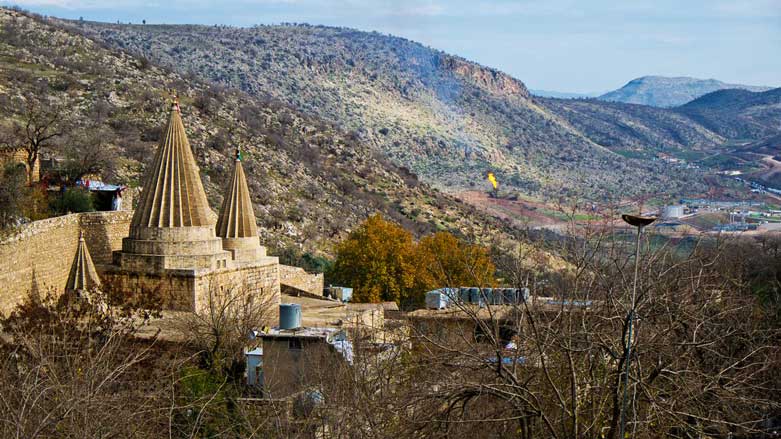Kurdistan Region congratulates Yezidis on Ezi Feast Day

ERBIL (Kurdistan 24) - Kurdistan Region Prime Minister Masrour Barzani congratulated members of the Yezidi (Ezidi) religious minority on their celebration of the Ezi Feast Day (Eda Rojiet Ezi).
“I invite all the people of the Kurdistan Region to join me in congratulating the Yazidi community in celebrating the Ezi Feast. I wish our Yazidi brothers and sisters a joyous feast, and hope it marks an end to your hardships and suffering,” he said.
“On this occasion, the Kurdistan Regional Government reiterates its commitment to continue protecting the rights of all communities, and preserving the culture of peaceful coexistence between different religious and ethnic groups in the Kurdistan Region.”
There are about one million Ezidis worldwide, with almost half of them living in Iraq and the autonomous Kurdistan Region.
The Ezi Feast Day is one of the most important holidays in the Ezidi religion and follows as three days of fasting are closed.
The emergence of the Islamic State and its violent assault on the Ezidi city of Sinjar (Shingal) in 2014 led to the displacement of hundreds of thousands of members of the religious community. Most of them fled to the Kurdistan Region, while others resettled in neighboring countries or in Western states.
Others were not as lucky and remained stranded in the war zone, where they experienced atrocities and mass executions at the hands of the extremist group for years. Militants subjected women and girls to sexual slavery, kidnapped children, forced religious conversions, executed scores of men, and abused, sold, and trafficked women across areas they controlled in Iraq and Syria.
Over six years since then, much of Shingal remains uninhabitable rubble, and very few of its former residents have returned to their homes. Tens of thousands of Yezidis from Sinjar and surrounding areas remain displaced in the Kurdistan Region. Others fled to Europe and other areas abroad.
The Government of Iraq and the Kurdistan Regional Government (KRG) announced in October that they had reached an agreement to restore and normalize the situation in the Shingal, where competing armed groups are active, which has hampered reconstruction of the area.
The agreement, supported by the international community, aims to remove the Kurdistan Workers’ Party (PKK) fighters and the Popular Mobilization Forces (PMF) from the strategic city on the border with Syria. The PKK and PMF have criticized and opposed the agreement.
There are hopes that the agreement will pave the way to the reconstruction of Shingal and the return of thousands of displaced Ezidis.
“I also call for greater concerted efforts to rebuild Yazidi areas and allow for IDPs to return to their ancestral homes safely and with dignity,” Barzani concluded.
Editing by John J. Catherine
